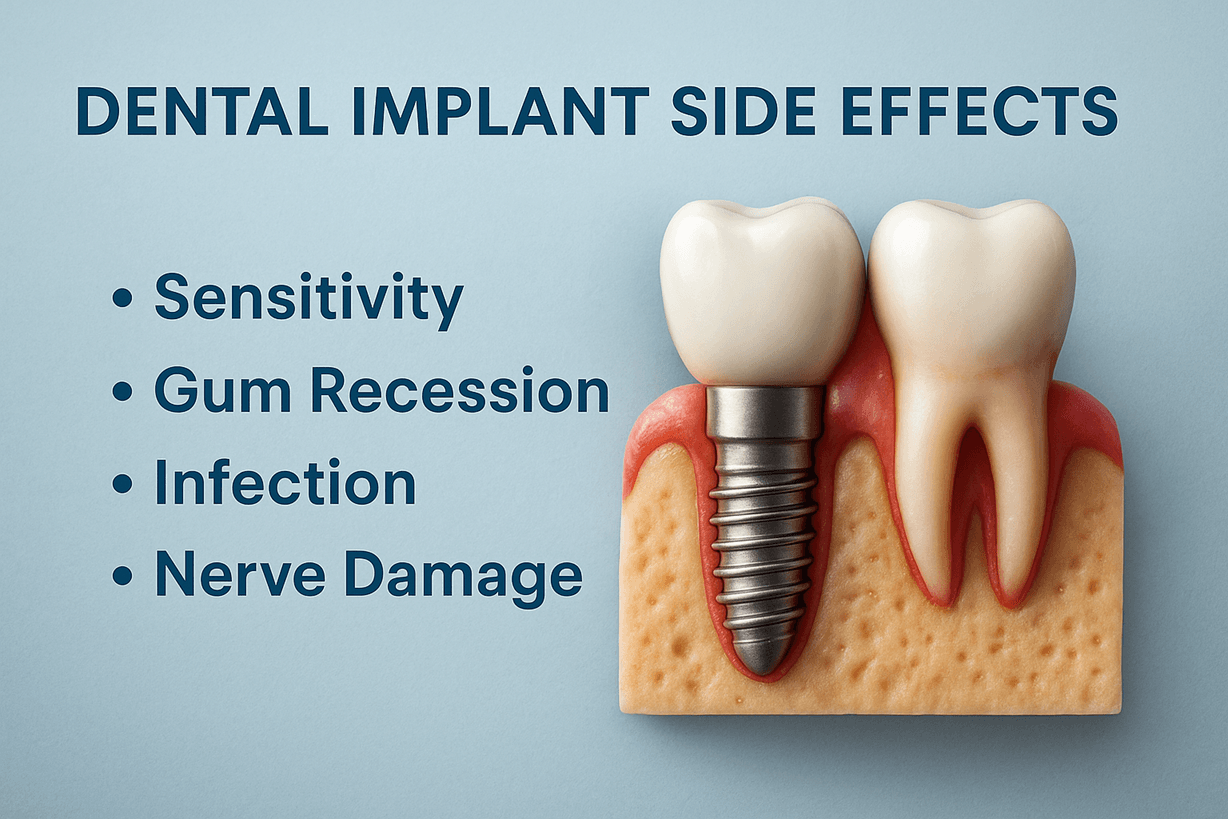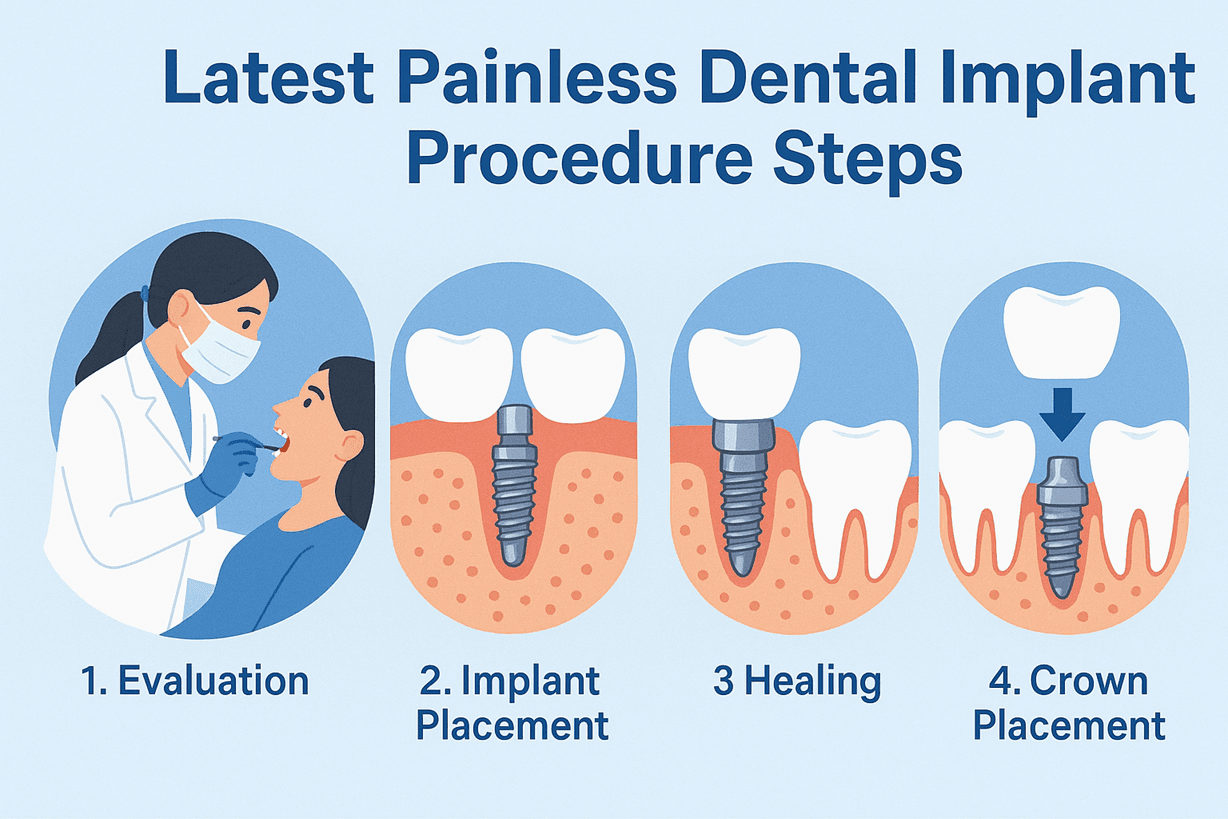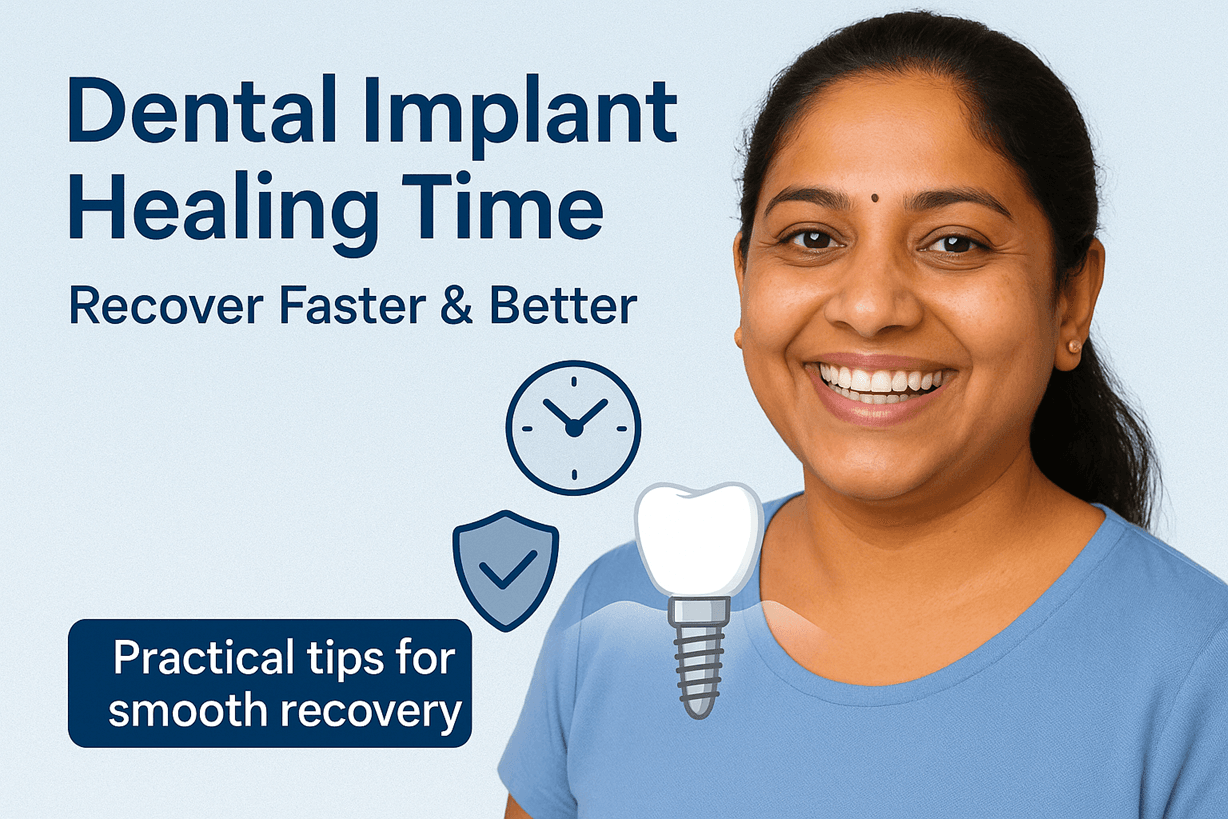Contents
- Jaw Clenching Causes and Symptoms
- The Connection Between Stress and Jaw Clenching
- Tips for Preventing Jaw Clenching
- Recognizing the Signs of Bruxism: Is Jaw Clenching Ruining Your Sleep?
- The Role of Dental Appliances in Treating Jaw Clenching
- The Role of Lifestyle Factors in Jaw Clenching: Diet, Exercise, and More
- 1. Diet:
- 2. Exercise:
- 3. Stress Management:
- 4. Oral Habits:
- 5. Sleep Hygiene:
- 6. Seeking Professional Help: When to Consult a Dentist or Physician
- 7. Holistic Approaches to Relieving Jaw Clenching
- Conclusion

The habit of clenching one's jaw sometimes referred to as bruxism, is widespread throughout the world.
It involves unconsciously clamping the jaw and grinding the teeth, frequently when sleeping or under stress.
The quality of our sleep, general wellness, and oral health may all suffer as a result of this repetitive activity.
We will explore the many facets of jaw clenching in this blog post, including its causes, symptoms, effects, and preventative and management strategies.
Jaw Clenching Causes and Symptoms
Jaw Clenching Causes
- There may be several underlying factors for jaw clenching as the body frequently exhibits tension and strain in the jaw, and stress and worry are frequently major causes.
- Additionally, certain drugs, sleep disorders, and misaligned teeth can cause bruxism.
- Early intervention is dependent on early symptom recognition.
Jaw Clenching Symptoms
- Jaw pain, headaches, worn-down teeth, face muscle soreness, and disturbed sleep patterns are typical symptoms.
- Damage to teeth, problems with the temporomandibular joint (TMJ), and persistent discomfort are possible long-term effects.
The Connection Between Stress and Jaw Clenching
Jaw clenching is significantly influenced by stress. The jaw muscles frequently tense up in response to increased stress levels in the body, which is common.
This automatic reaction may result in extended periods of nighttime and daytime jaw clenching and teeth grinding.
The signs of bruxism can be lessened by finding appropriate stress management strategies, such as exercise, relaxation techniques, and getting assistance.
Tips for Preventing Jaw Clenching
Numerous dental issues can result from teeth grinding and clenching regularly.
- The enamel of the teeth gradually erodes as a result of constant friction, which is one of the main impacts.
- This may lead to greater dental sensitivity, a higher risk of cavities, or even broken or fractured teeth.
- The teeth's shape and look may change as a result of wear and tear over time.
- In addition to wearing down the jaw muscles and inflaming the joint, bruxism can also result in TMJ issues.
- Furthermore, the high forces generated by jaw clenching might alter the position of teeth, sometimes necessitating orthodontic treatment.
- To maintain dental health and prevent long-term consequences, jaw clenching must be addressed.
- To prevent these complications, it's important to maintain good oral hygiene practices and visit the dentist regularly.
- Additionally, using a mouthguard or splint can help protect the teeth and reduce the impact of grinding during sleep.
- Avoiding hard foods, excessive caffeine, and alcohol can also contribute to minimizing jaw clenching.
Recognizing the Signs of Bruxism: Is Jaw Clenching Ruining Your Sleep?
Jaw clenching frequently takes place while you sleep, making it challenging to recognise the issue in the absence of obvious symptoms.
Bruxism may be present if you frequently wake up with a painful jaw or morning headaches. During the night, partners or family members could also hear grinding.
Keeping a sleep journal and talking to a doctor about your worries can help with diagnosis and subsequent treatment.
The Role of Dental Appliances in Treating Jaw Clenching
- Dental appliances are important in the management of bruxism, or the habit of grinding one's teeth.
- These customized devices, often known as night guards or splints, are worn while you sleep.
- They are made to act as a buffer between the upper and lower teeth, reducing clenching or grinding against one another.
- Dental appliances assist in alleviating the symptoms and shielding the teeth from accelerated wear and damage by absorbing and spreading the forces produced by jaw clenching.
- Additionally, these devices can ease jaw clenching-related pain and discomfort by relaxing the jaw muscles and easing pressure on the temporomandibular joint (TMJ).
It is important to consult with a dentist or a dental professional to determine the most suitable dental appliance for individual needs and ensure proper fit and effectiveness in managing jaw clenching.
The Role of Lifestyle Factors in Jaw Clenching: Diet, Exercise, and More
Lifestyle factors play a crucial role in managing jaw clenching.
1. Diet:
How much we clench our jaws can vary depending on what we eat and drink.
- Two stimulants that can heighten reactivity and muscle tension include caffeine and alcohol, which may make bruxism episodes worse.
- Other factors that can put stress on the jaw joint include spicy or difficult foods that need a lot of chewing.
- Limiting your intake of alcohol and caffeine is a smart suggestion.
- You should also choose a well-balanced diet rich in fresh food.
- Additionally, it's beneficial to maintain optimum hydration throughout the day by drinking enough water.
2. Exercise:
- Regular exercise is not only important for overall health but can also help with bruxism management.
- Exercise encourages muscle relaxation throughout the body, including the jaw muscles, and lowers levels of tension.
- Exercise that you enjoy, such as yoga, swimming, or walking, might help you relax and release tension, which may lessen the frequency of your jaw-clenching episodes.
3. Stress Management:
- Jaw clenching is significantly influenced by stress.
- Finding efficient stress-reduction strategies might help a lot in reducing the symptoms of bruxism.
- Try out several stress-reduction techniques to see which ones work best for you.
- Jaw clenching can be reduced and stress levels can be reduced by doing deep breathing exercises, meditation, mindfulness exercises, and engaging in relaxing hobbies or pastimes.
4. Oral Habits:
- Some dental habits can make jaw clenching worse.
- The chance of bruxism increases when people chew on pencils, bite nails, or hold things between their teeth because these habits put undue stress on the jaw joint and muscles.
- It's critical to be aware of these behaviours and actively steer clear of them.
- Additionally, practicing strong oral hygiene habits, such as consistent brushing and flossing, can improve general oral health and possibly lessen difficulties associated with bruxism.
5. Sleep Hygiene:
- Jaw clenching at night can be attributed to poor quality of sleep. Establishing sound sleeping habits can reduce the frequency of bruxism attacks.
- To encourage better sleep, create a relaxing environment for sleeping, keep a regular sleep schedule, and use relaxation methods before bed.
- A more restful sleep may result in less clenching of the jaw by avoiding stimulating activities or devices close to bedtime and establishing a calming bedtime ritual.
6. Seeking Professional Help: When to Consult a Dentist or Physician
- If jaw clenching persists despite self-care efforts, it is advisable to consult a healthcare professional.
- A dentist can evaluate the extent of dental damage and recommend suitable treatment options.
- In some cases, addressing the underlying cause, such as sleep apnea or temporomandibular joint disorders, may be necessary.
- Physicians may also prescribe medications or therapy to manage stress and associated symptoms.
7. Holistic Approaches to Relieving Jaw Clenching
- In addition to conventional treatments, various natural remedies and relaxation techniques can aid in relieving jaw clenching.
- Herbal supplements like valerian root or chamomile can promote relaxation and reduce anxiety. Applying warm compresses to the jaw area before sleep can help relax the muscles.
- Practicing jaw stretches and implementing stress-reducing activities like meditation and aromatherapy can contribute to overall well-being and alleviate bruxism symptoms.
Conclusion
Jaw clenching can have significant implications for our dental health, sleep quality, and overall well-being.
By understanding the causes, recognizing the symptoms, and implementing appropriate prevention and management strategies, we can effectively address this condition.
Remember, consulting with healthcare professionals and adopting a holistic approach that encompasses stress reduction, dental care, and healthy lifestyle practices is essential in finding relief from jaw clenching and restoring oral health.


